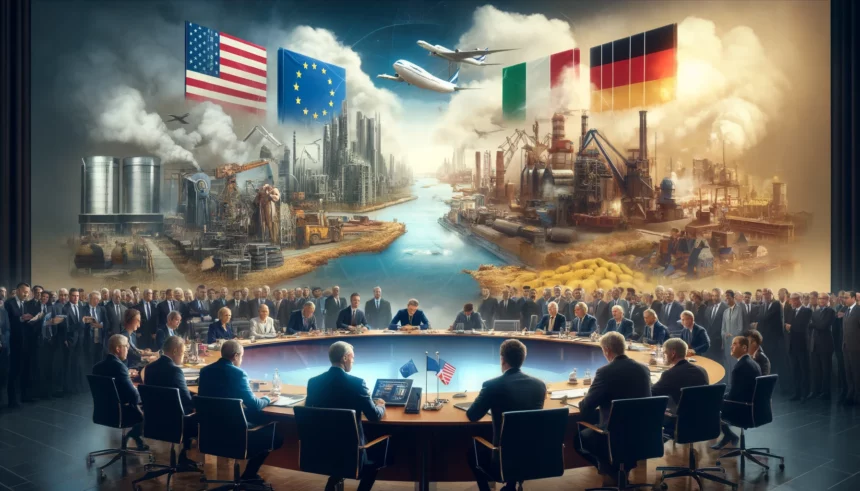A Gathering in Paris Last week, economic leaders from France, Germany, and Italy met near Paris. They agreed on a new economic strategy to tackle the increasing protective measures by the U.S. and China aimed at boosting their domestic industries.
The Rise of Industrial Policies These European countries are now part of a growing trend where nations are adopting more controlled economic measures. In the past year alone, there were over 2,500 new policies such as subsidies, tax benefits, and trade barriers, a significant increase from the 836 introduced in 2019.
Key Points:
- Who’s Involved: The policies are mostly adopted by wealthy and advanced economies.
- What’s New: A dramatic shift from their previous free-market stance.
Why It Matters While these policies are popular at home, they are not without critics. Many worry that too much government control might slow down the worldwide economy. This topic is set to be a hot issue at the upcoming IMF and World Bank meetings in Washington.
Expert Opinions Economists like M. Ayhan Kose from the World Bank and Kristalina Georgieva from the IMF have voiced concerns. They warn that such heavy government involvement, unless in extreme cases, could hinder economic progress.
Why the Shift? Recent years have seen numerous global challenges like the pandemic, supply chain issues, and geopolitical tensions. These have pushed governments to look for stability and self-reliance, moving away from the previously dominant free-market approach.
U.S. and European Strategies Countries are now more focused on securing their economies. Massive investments are being made in critical technologies and combating climate change, similar to strategies seen in China.
IMF’s Response In light of these changes, the IMF has set new guidelines for implementing these industrial policies. They stress the need to address market failures and maintain fair treatment for international businesses.
Europe’s Path Forward Despite some differences within the EU, there is a strong movement toward joint economic efforts. France is pushing for bold supports for European industries, and Germany is approaching with caution. Plans are also in the works to boost green and digital technologies across Europe.
Looking Ahead With these strategies, European nations hope to strengthen their economic positions and protect their industries on the global stage. This new direction marks a significant shift in economic thinking, reflecting a blend of old strategies and new realities.
Discussion Points:
- Could this be the start of a global economic transformation?
- How might these policies affect global trade and economic relationships?
Join the Conversation What do you think about these shifts in economic policy? Are they a necessary response to global challenges, or might they lead to more problems down the road? Drop your thoughts in the comments below!
















